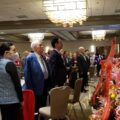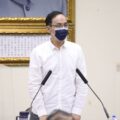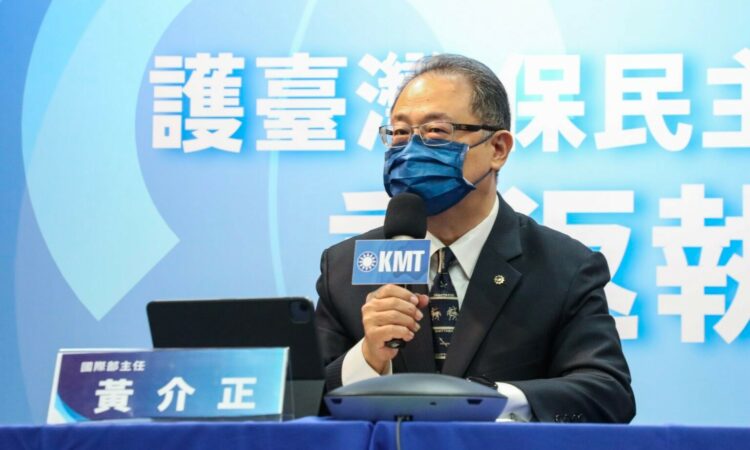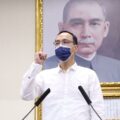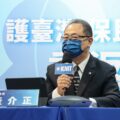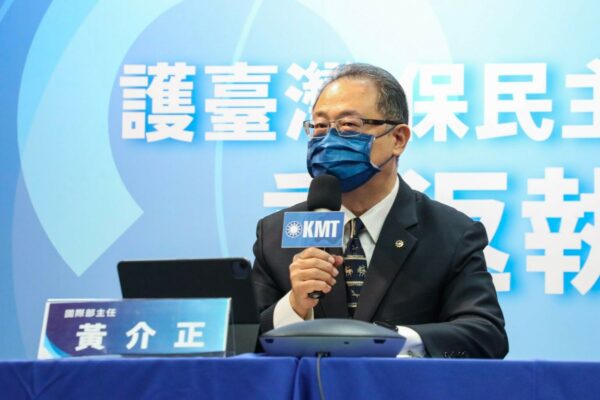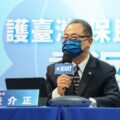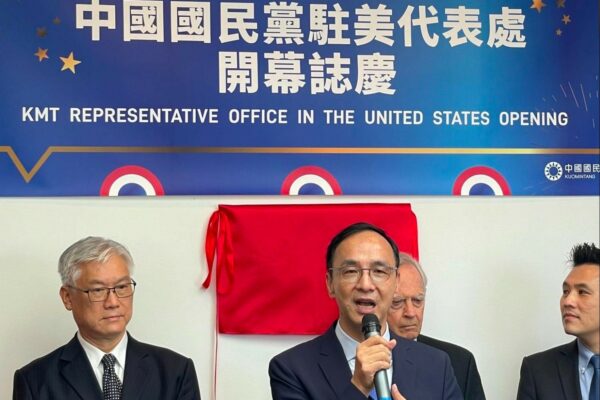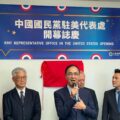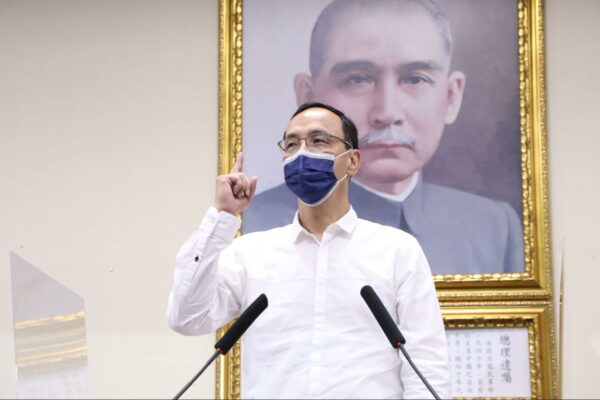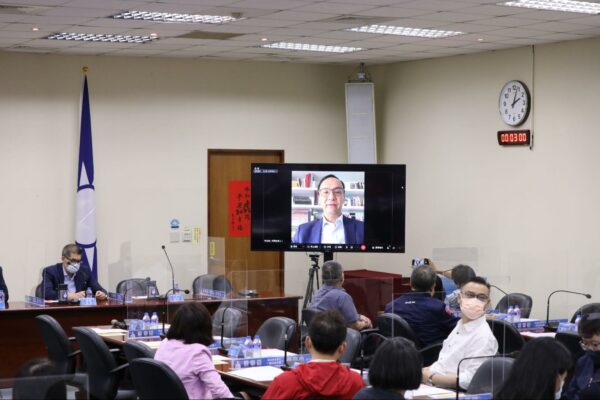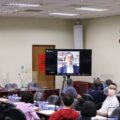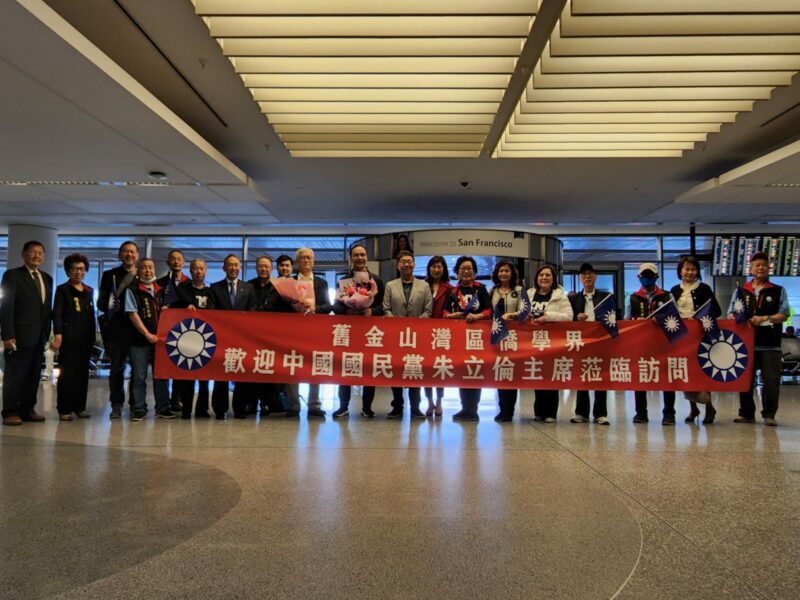
Kuomintang (KMT) Chairman Eric Chu and members of the US delegation arrived at San Francisco International Airport at 2AM US Pacific Time. Over twenty overseas party members and overseas Chinese compatriots, including KMT Organization and Development Department of Overseas Affairs Deputy Director Chung Wei-chun (鍾維君), appeared in person to pick up the delegation and cordially welcome its arrival in the United States. Chairman Chu said that he was very grateful towards the overseas Chinese for their warm welcome and said that he was very happy to visit the United States again. He also stated that he very much looked forward to meeting with and exchanging views with the vast number of overseas party members and overseas Chinese compatriots.
KMT Culture and Communications Committee Deputy Director Alfred Lin pointed out that Chairman Chu and the delegation members arrived at US San Francisco International Airport on June 2nd at 6AM US Pacific Time; June 2nd at 9PM Taiwan time. Deputy Representative to the US Eric Huang, who had rushed from Washington DC, and Department of Overseas Affairs Deputy Director Chung Wei-chun, led over 20 overseas party members and overseas Chinese from the Kuomintang of China Headquarters in America to greet the delegation at the airport. The occasion was simple but meaningful; both warm and moving.
Chairman Chu thanked the overseas Chinese for their warm welcome. He then stated that he is happy to have returned to the United States, and that he looks forward to meeting with and exchanging views with the vast number of overseas party members and overseas Chinese. Deputy Director Chung Wei-chun said that Chairman Chu was very welcome, and that the last time the Chairman had come to San Francisco was seven years ago to hold an overseas Chinese gathering. Deputy Director Chung didn’t expect that Chairman Chu would immediately recall this event as soon as they met again. It made Deputy Director Chung feel like the event was just yesterday; he was very happy that Chairman Chu had come to San Francisco.
The members who had accompanied Chairman Chu to the United States included KMT Vice-Chairman Andrew Hsia, KMT Department of International Affairs Director & Representative to the US Alexander Huang, Culture and Communications Committee Deputy Director Alfred Lin, Department of International Affairs Deputy Director Joseph Weng, and Department of International Affairs Assistant Director Wennie Wu. KMT Department of International Affairs Deputy Director and Deputy Representative to the US Eric Huang was already in the US and had travelled to San Francisco to meet the delegation. KMT Legislator & KMT Organization and Development Department of Overseas Affairs Director Charles Chen will meet the delegation in Washington; the entire group totals 8 people.
Alfred Lin stated that the delegation would immediately visit a think tank and the overseas Chinese community in San Francisco. In addition to visiting the Hoover Institution at Stanford University and meeting with experts from the local Taiwan studies community, the delegation will also visit the San Francisco Dr. Sun Yat-Sen Memorial Hall, Hongmen Chee Kung Tong, US Hop Sing Tong, and US Bing Kong Tong, and other time-honored overseas Chinese societies. Lastly, the delegation will hold a banquet with local overseas Chinese at the Crowne Plaza Hotel in Foster City; a public press conference will also be held before the banquet. The delegation will meet with all walks of life to express their expectations for the .trip to the United States.
On this 12 day trip to the US, Chairman Chu, in addition to leading the delegation to San Francisco, Washington DC, New York, and Los Angeles, will also personally inaugurate the reopening of the KMT Representative Office in the United States, symbolizing the KMT’s return to the United States: “We Are Here.” The office will strengthen communication with all walks of life in the United States and convey the KMT’s position of risk reduction in the Taiwan Strait, defense of democracy and freedom, and pursuit of peace and stability in the Taiwan Strait.
